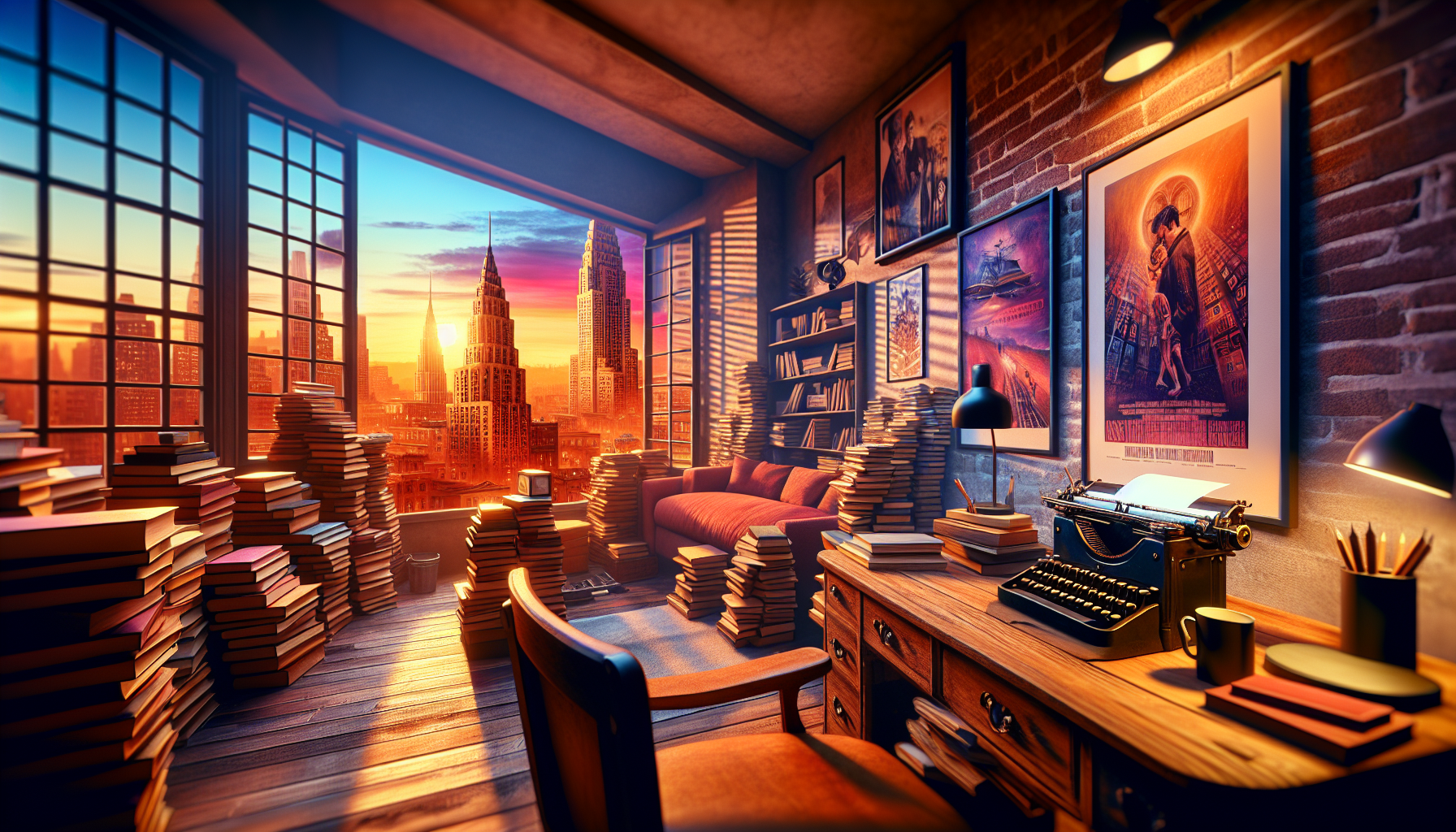
Grab Your Popcorn: It’s Screenwriting 101!
So, you fancy yourself a visionary, do you? Aspiring to become a scribble-slinging virtuoso who can transform caffeine into compelling drama? Welcome to the dazzling world of screenwriting, where words on a page metamorphose into cinematic gold. Let’s peel back the curtain on this enigmatic art form and discover how you can begin your own silver screen odyssey.
What Exactly Is Screenwriting?
Imagine taking every emotional rollercoaster you’ve ever ridden, combining it with sharp, witty dialogues, and then boxing it all neatly within a 120-page document. That, my friend, is screenwriting. It’s the craft (and yes, it really is a craft) of penning down scripts for films, television shows, and even video games. Screenwriters are the unseen architects who build worlds with words, dictate the pace of our heartbeats with climaxes, and might even decide who gets to ride off into the sunset.
The Skeleton: Structure Is Everything
No surprises here, but even rebels have a plan. Most screenplays follow a time-honored structure known as the three-act structure, deliciously simple yet fiendishly difficult to master. Here’s what it looks like:
- Act One: Setup – Introduce your characters, their world, and that pesky problem that’s going to ruin their weekend.
- Act Two: Confrontation – The meat of the story. Challenges abound, stakes are raised, and your characters are put through the ringer.
- Act Three: Resolution – Culminations and catharsis. Solutions are found, lessons are learned (hopefully), and equilibrium is restored (or completely destroyed, depending on your genre).
This trusty structure is your battle-plan, ensuring that your narrative doesn’t end up resembling a plate of spaghetti – all tangled with no beginning or end in sight. Twist it, break it, but remember: it’s a guideline, not gospel.
Dialogue: It’s Not What You Say, It’s How You Say It
Banter, repartee, and soliloquies — the weapons of choice for any screenwriter. Dialogue can make or break your script. Great dialogue serves several masters: it reveals character depth, it pushes the plot forward, and ideally, it’s as natural as the notion of adding pineapple to pizza (controversial? Yes. But unforgettable, too).
Remember, your characters aren’t just reciting the dictionary. They are real people (at least, they should feel like they are). Each with their own quirks, dialect, and possibly an embarrassing love of bad puns. Make their words count.
Character Development: Know Them Better Than Your Best Friend
Imagine going on a road trip with someone you met two minutes ago. Now try spending an entire movie with them. Hard sell, right? This is why character development is crucial. Your characters drive the story, they’re the VIP guests at your narrative party. Make them complex, flawed, but most importantly, relatable. They should evolve, grow, or spectacularly fail — because static is only good for clingy sweaters and awkward uncle hugs.
Give them dreams, fears, a love of disco — whatever it takes to make them breathe off the page. Then put those dreams through a woodchipper and see what happens. Conflict, baby, it’s the secret sauce of drama.
The Unseen Maestro: The Screenwriter’s Role
Forget the director’s chair; it’s the screenwriter’s pen that’s mighty. You’re the first domino in a long chain of movie magic. Your script is the blueprint, the map, the sacred text from which all else springs. But remember, collaboration is key. Directors, actors, and a whole host of creatives will take your text and run with it. Be open, adaptable, and ready to kill your darlings (figuratively, of course). Your final product may look different from the one you envisioned, but that’s the thrill of the industry.
Armed with structure, compelling characters, and snappy dialogue, you’re well on your way to penning your first masterpiece or at least, a really solid attempt that doesn’t make people cringe. Keep honing your craft, keep dreaming big, and who knows? Maybe I’ll be queuing up to catch your blockbuster in the surge of summer releases. Happy writing!






